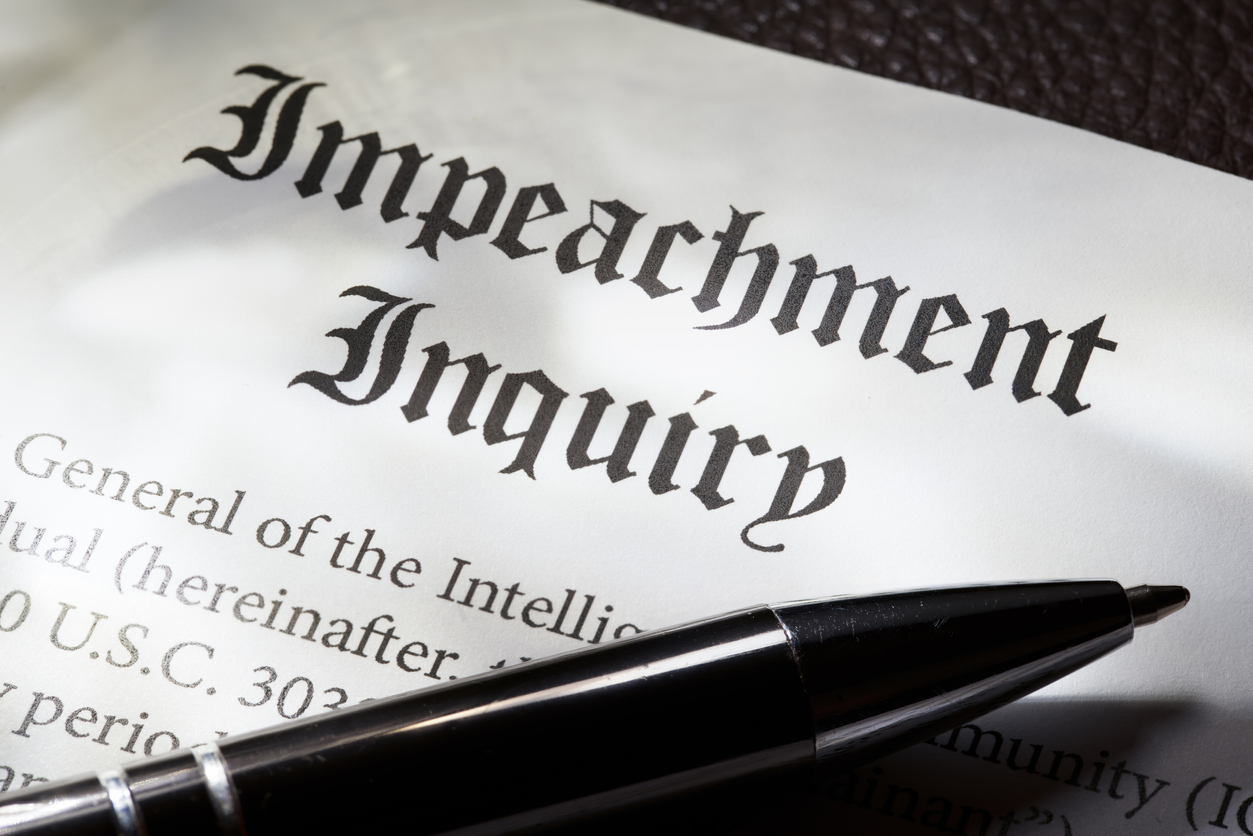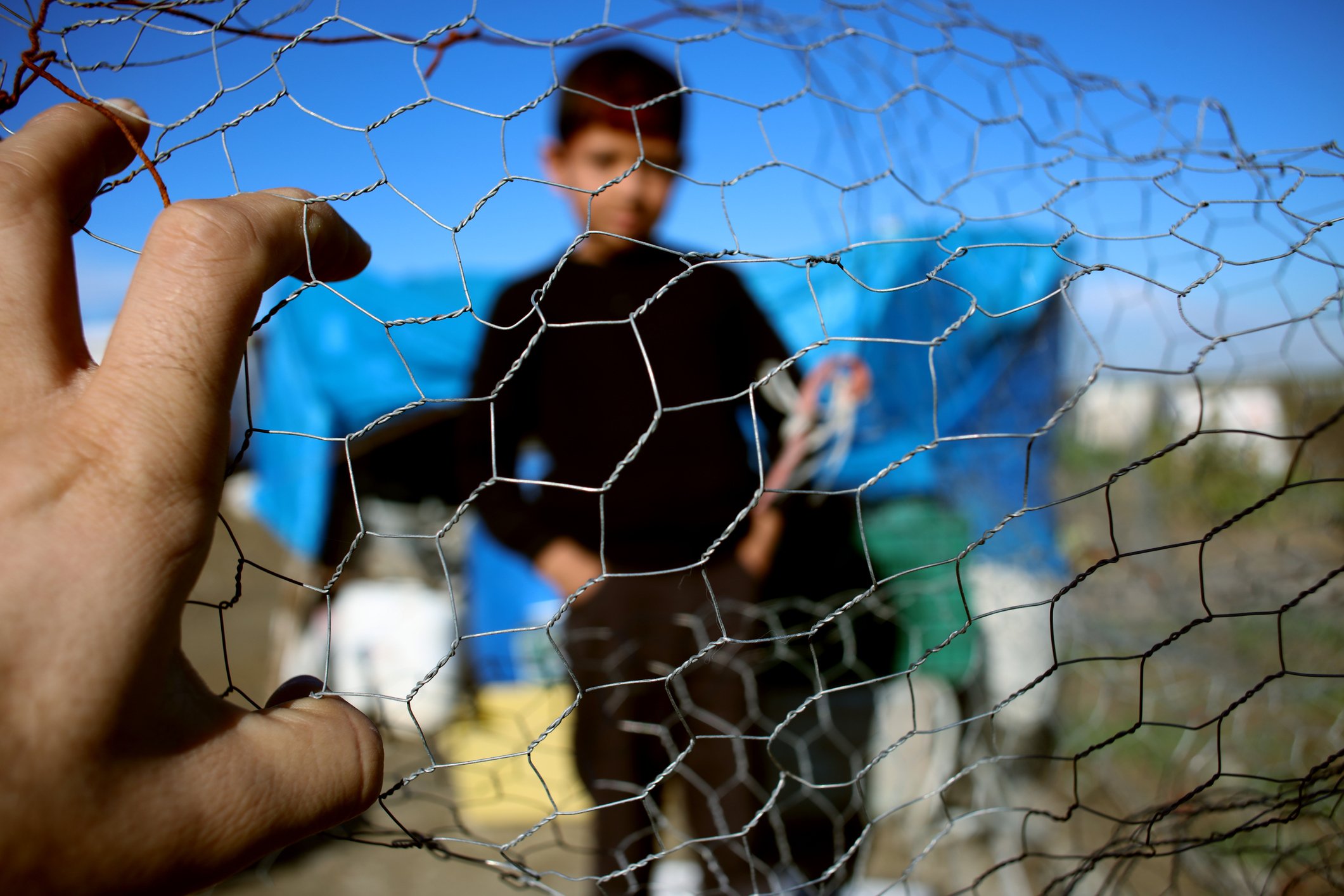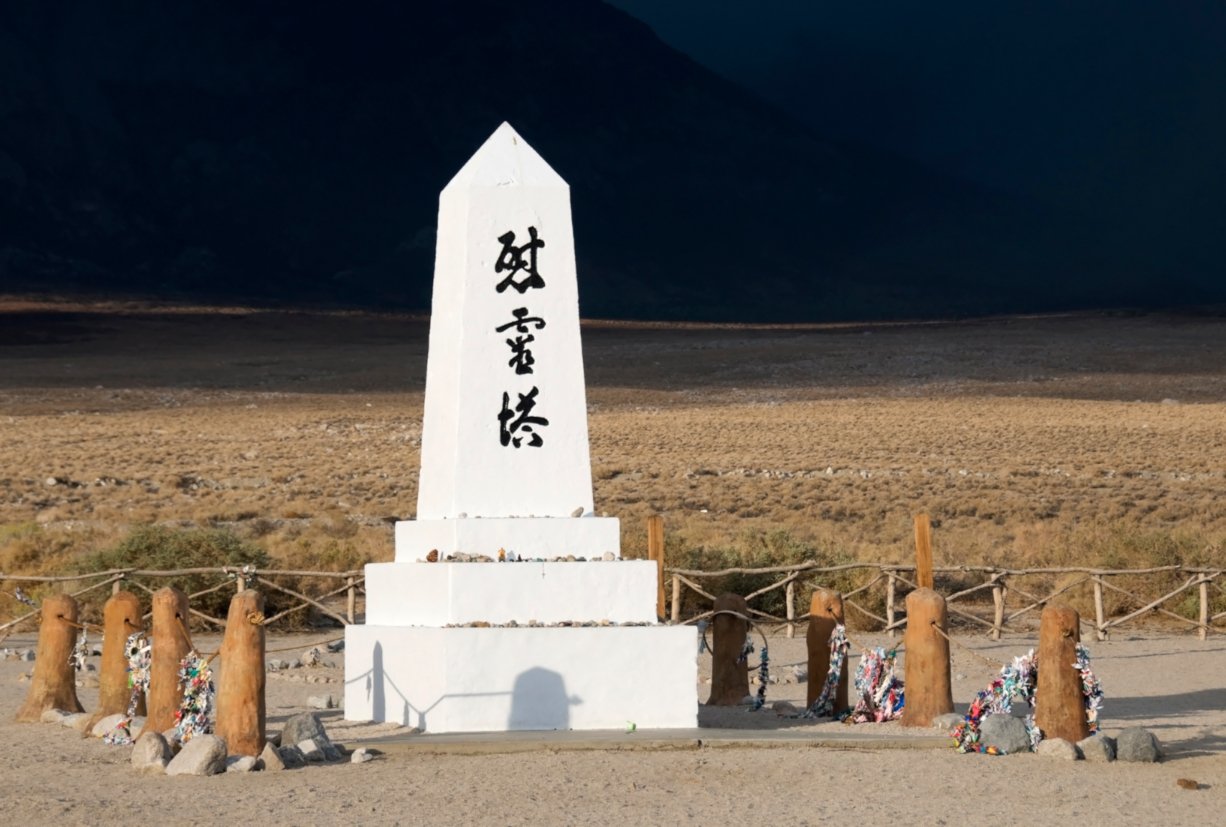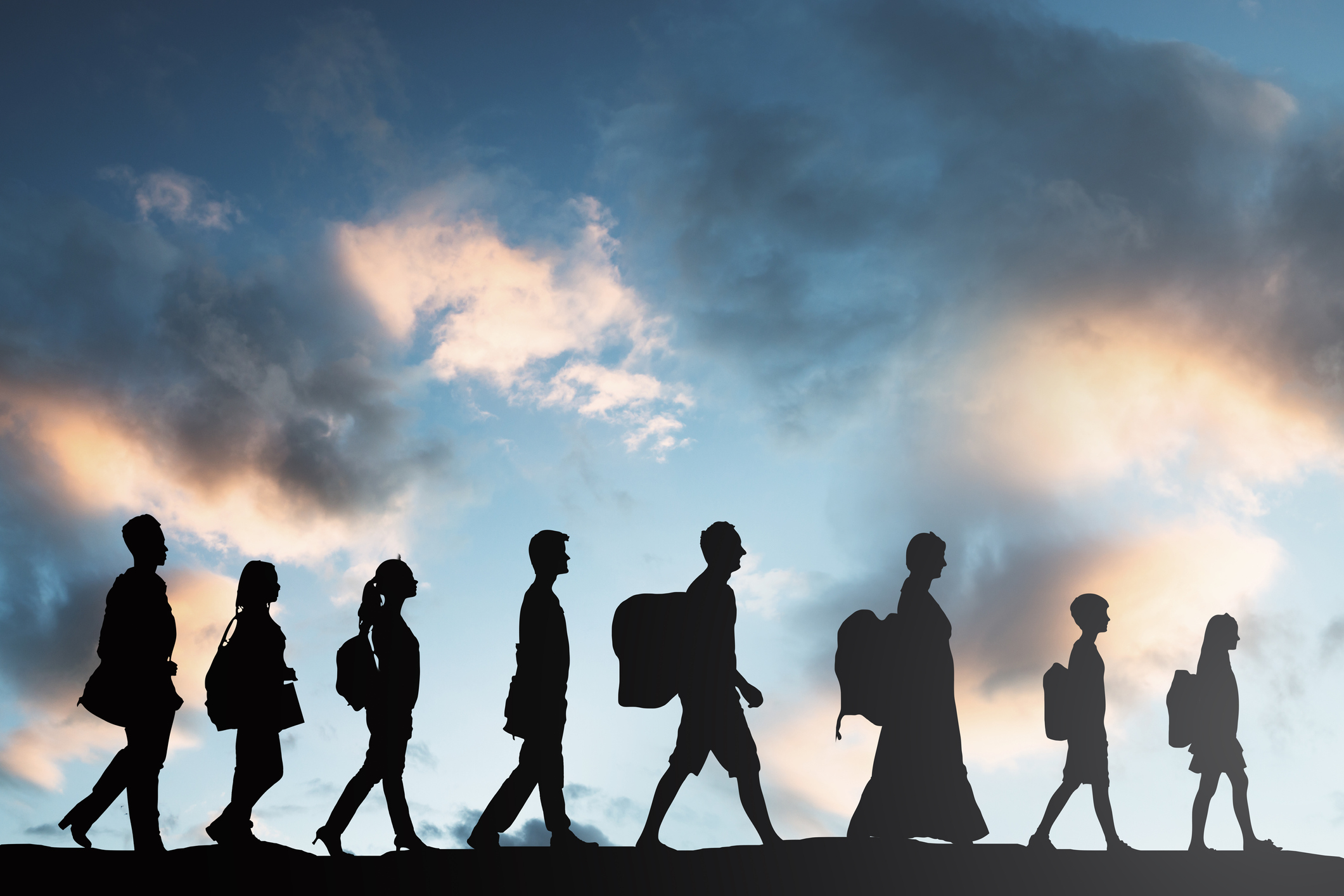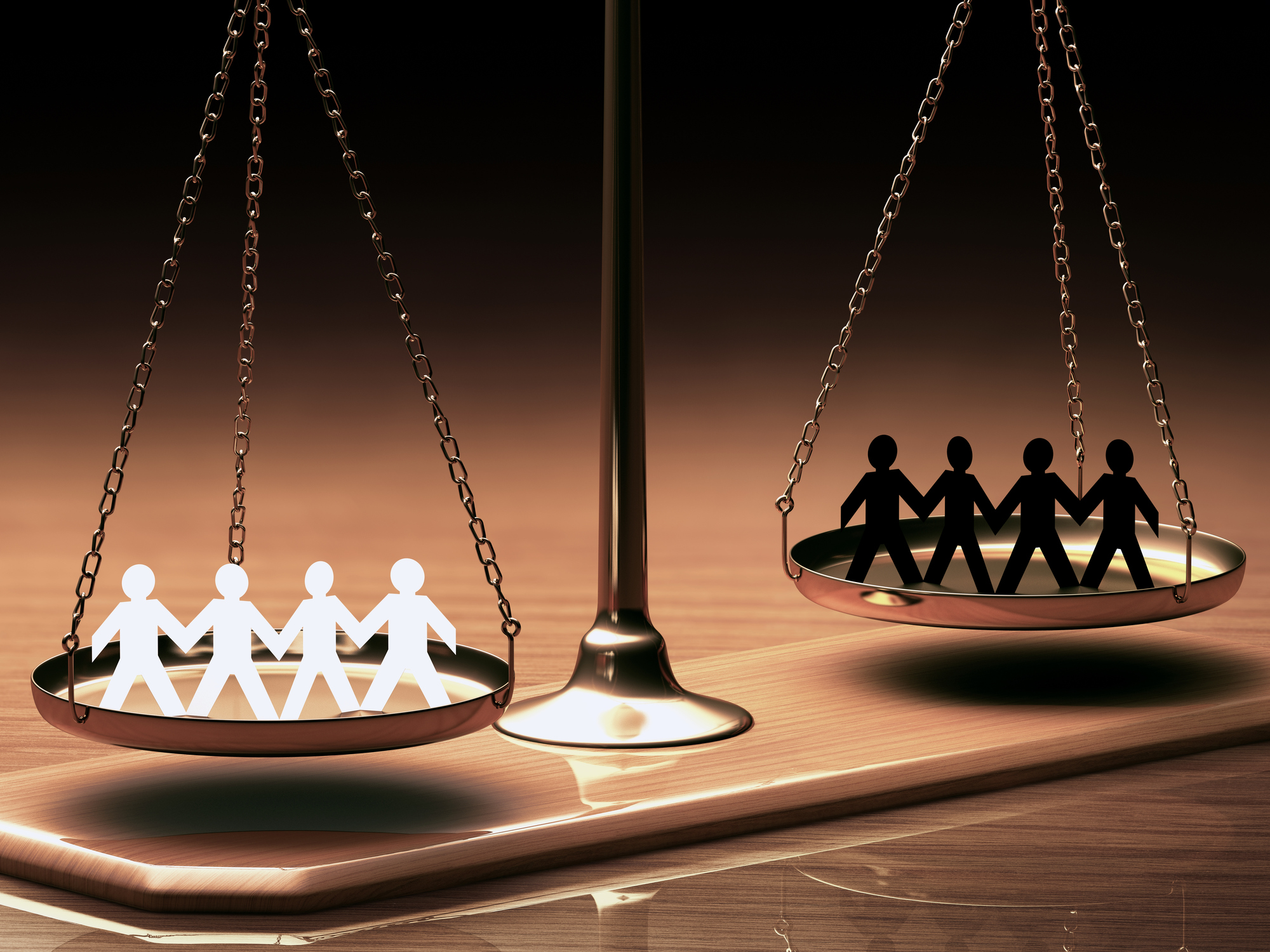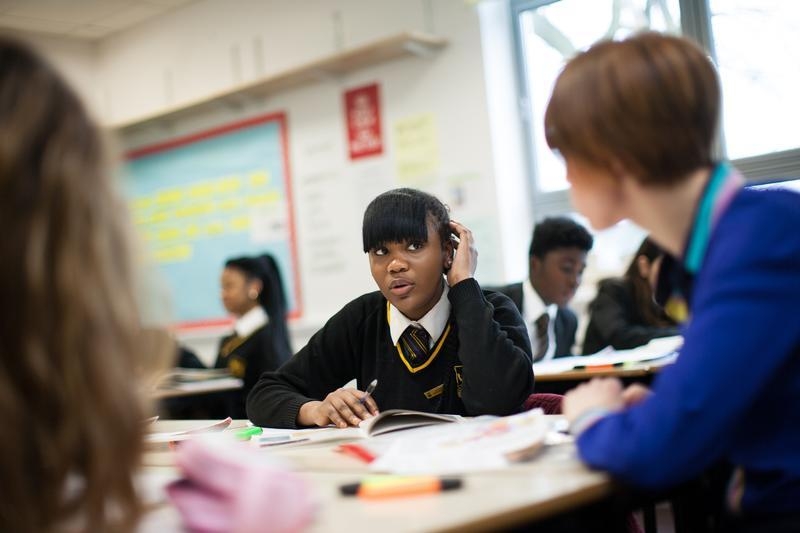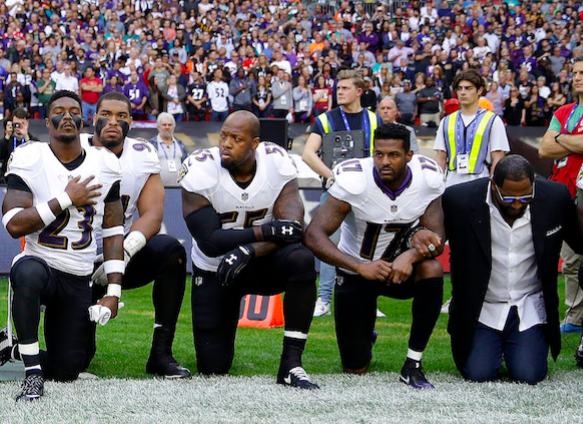As public presidential impeachment hearings begin in the US House of Representatives, American middle and high school educators face a number of unique challenges. One might ask: How can I address such a polarizing issue in my classroom when my students’ political ideologies are all over the map? How can I ensure that thoughtful discourse prevails over name-calling and hostility, even when emotions are running high? And how can I make this a meaningful opportunity for civic learning?
Language can be alienating. Words with strong associations often force us to take positions of opposition, rather than seek understanding. This has happened recently, when detention centers along the U.S.–Mexico border were termed “concentration camps.” The response was foreseeable: the term has become so strongly associated with Nazi deportations and killing centers that any other use of these words can feel insulting. Used in a contemporary context, the words themselves have the power to cause pain, seeming to diminish the suffering of those who experienced or survived the Holocaust.
Summer is a time for relaxation. However, many of us also seek books and stories that will immerse us in the experiences of others, or will help us stay engaged in making a better world. Here are six picks that will teach, challenge, and inspire us.
Topics: Democracy, Immigration, Race and Membership, Holocaust Education, LGBTQ, Reading List
The recent 65th anniversary of Brown v. Board of Education—the landmark 1954 U.S. Supreme Court decision that overturned the policy of state-sanctioned segregation in public schools—raised a number of vexing questions for those concerned with educational equity today. As a decades-old quagmire of competing interests sustains school segregation in many parts of the country, this anniversary reminds us that we must have all hands on deck in the continuing fight for educational equity.
Topics: Civil Rights Movement, Democracy, Race and Membership, Jewish Education Program
Aliens in Their Own Land: The Incarceration of Japanese Americans
Posted by Brian Fong on May 28, 2019
Travel 230 miles north of Los Angeles to Owens Valley at the foot of the Sierra Nevada Mountain range and you will find a white concrete obelisk with black Japanese writing rising out of the desert. Only a few simple gravestones stand in the background a few feet away. Today, the obelisk is one of the few remaining structures from the Manzanar War Relocation Center—an American concentration camp where Japanese Americans were held during World War II.
Topics: Democracy, Immigration, Japanese American Incarceration
In our present political climate, discussion of immigration is both essential and inevitable. But how can we confront these polarizing issues in the classroom in ways that deepen empathy, deliver vital historical context, and promote critical thinking? Check out these three rich resources designed for educators who are interested in addressing immigration in the classroom:
Topics: Democracy, Immigration
Sixty-five years ago today, the justices of the United States Supreme Court voted to overturn decades of racial segregation in American public schools. Buttressed by the groundbreaking research of psychologists Drs. Kenneth and Mamie Clark on the adverse effects of segregation on black children, the Brown v. Board of Education decision inaugurated a new chapter in American education that would compel communities to reckon with racism and inequality in new ways. But as we reflect upon this momentous legal decision, we must ask whether the educational equity that Brown called for has actually been realized—as well as what curious residues of racial segregation remain more than a half-century later.
Topics: Civil Rights Movement, Democracy, Schools, Civil Rights
"Democracy cannot succeed unless those who express their choice are prepared to choose wisely. The real safeguard of democracy, therefore, is education." -Franklin D. Roosevelt
During April, Extinction Rebellion staged one of the biggest acts of peaceful civil disobedience that London has ever experienced. Over 1,000 arrests were made, with many of those arrested returning to the protest as soon as they were released. The group – who are said to cite the Suffragettes, Occupy and the Rev. Dr. Martin Luther King, Jr. as sources of inspiration – are striving to create a common sense of urgency around the world about climate change.
Topics: United Kingdom, Democracy
“Daddy - I don’t want to leave Europe, I love this house and I want to stay living here,” my six year old son, David, piped up whilst his Dad was watching the coverage of the vote on the Withdrawal Agreement. We reassured him that leaving the EU didn’t actually mean physically going anywhere. However, had some of my children’s classmates expressed this anxiety, those words would have had a whole different weight to them. Some of their parents, as citizens of other countries within the EU, are struggling with what a ‘no deal’ Brexit would mean for their families.
Topics: United Kingdom, Democracy, Teachers
Amid the sheer number of social justice movements across the political and cultural spectrum, we are met with daily opportunities to find our voices as upstanders. And yet, it may not always be obvious who constitutes an upstander. The array of approaches by key actors in the #TakeAKnee controversy reveals that upstandership in action does not have a single definition and invites us to examine which approaches to social change are most aligned with our own values.

